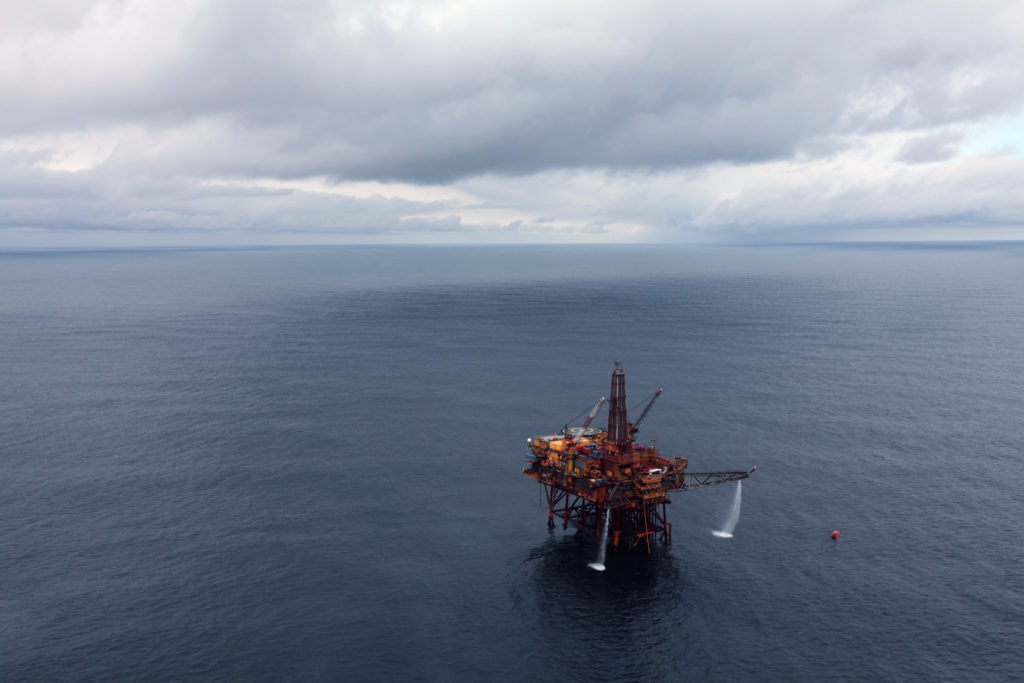
Oil and gas firm EnQuest has confirmed plans to decommissioning its fire-damaged Heather Alpha platform in the northern section of the UK North Sea.
EnQuest said the “costs and risks” of fixing the installation “outweighed the economic benefits” of resuming production.
Two workers were airlifted to hospital in October after a fire broke out in a compressor module on Heather Alpha, 245 miles north-east of Aberdeen.
At the time, production from the platform was already shut down to allow pre-planned maintenance work to be carried out on its compressors.
EnQuest said it had since “reviewed all options for a potential restart” of what is a “late-life asset”, but concluded that bringing forward decommissioning was the better option.
An EnQuest spokeswoman said the firm would work with regulators to secure necessary approvals to deliver a safe and efficient decommissioning programme.
About 130 people were working on Heather Alpha during its maintenance shutdown in October.
The spokeswoman said EnQuest was “already engaged in speaking to staff and contractors to clarify plans to continue safe and efficient operations during the decommissioning phase of this asset”.
The Heather field was discovered in 1973 and developed by operator Unocal, with a fixed, steel platform.
Production began in 1978, reaching a peak of 36,000 barrels of oil equivalent per day in 1982.
The license operatorship subsequently changed to DNO in 1996, then to Lundin in 2004.
EnQuest became the operator in 2010, when it was formed from the demerged UK North Sea assets of Petrofac and Lundin.
EnQuest held a 100% interest in Heather while it was in production. Its decommissioning liability is 37.5%.
The company said it would weigh up options for continuing production from the Broom field, which was developed as a subsea tieback to Heather and came on stream in 2004.
Recommended for you

